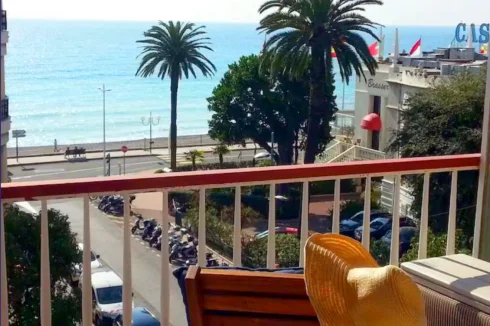Planning Controls on Historic Buildings in France
Tuesday 17 February 2009
If you live near a protected building in France, or within a conservation area, you are subject to stronger planning controls.
Despite its reputation as a country with a comparatively relaxed regime of planning and building controls, any laxity stops when it comes to protected buildings.
Those who wish to undertake building works on such properties, or within conservation areas, need to deal with the fearsome Architectes des Bâtiments de France (ABF), specialist planning officials based in the préfecture, whose consent is required for any planning application concerning such properties.
Indeed, even if your property is not a listed building (monument historique), but you live within 500 metres of such a building, then you are subject to the same planning regulations, which require that the application be considered by the ABF.
Your planning application will also be considered by the ABF if you live within a conservation area, called either a Secteur Sauvegardé, or a Zone de Protection du Patrimoine Architectural, Urbain et Paysager (ZPPAUP).
The former are zones designated within town or city centre, often called `Malraux`, after the Minister who introduced the law. New designations are now rare, as they have been superseded by the ZPPAUP, which post-date the Secteur Sauvegardé. They are often smaller in size, based around an historic monument, or sensitive areas in rural locations.
As it happens, less than 5% of all planning applications are ever submitted to the ABF, the vast majority of which are approved, with only 6% receiving a refusal.
If the ABF do refuse, the mairie, as planning authority, can appeal against the decision, as can the applicant. The appeal is heard by the préfet, in consultation with the Commission Régionale du Patrimoine et des Sites (CRPS).
Complaints about the ABF occur more often because of the time they take to consider a planning application, and for the very prescriptive nature of the conditions they impose on planning consents.
Thus, whilst the planning authority are required to make a decision on a normal planning application within two months, this is extended to six months in the case of those planning applications that need to be referred to the ABF, who have four months to consider the application. The local planning authority then have up to two months to consider the application, following the advice from the ABF.
Once their decision is received, it will often contain a list of very detailed conditions concerning the nature and execution of the works. It is not unusual for some projects to be aborted simply because of the sheer weight of conditions imposed by them.
Alternatively, the plans may need to be reformulated and submitted afresh, with the result that a further six months may pass before a decision is reached.
Clearly, in each case there are additional architect`s fees that will need to be paid, as well as the cost and inconvenience in delays to commencement of the building works.
Accordingly, if you do live within a protected area, or own a listed building, you would be wise to consider very carefully the appointment of your architect, and to select one who has good links to the ABF, who is able to understand their requirements, and prepare plans that are likely to meet with their approval in the shortest possible time.
Thus, where there are proposals made that risk detracting from the beauty of a local area, the role of the ABF in seeing off these projects is often critical.
You can read more in our guide to Planning System in France.
Thank you for showing an interest in our News section.
Our News section is no longer being published although our catalogue of articles remains in place.
If you found our News useful, please have a look at France Insider, our subscription based News service with in-depth analysis, or our authoritative Guides to France.
If you require advice and assistance with the purchase of French property and moving to France, then take a look at the France Insider Property Clinic.





